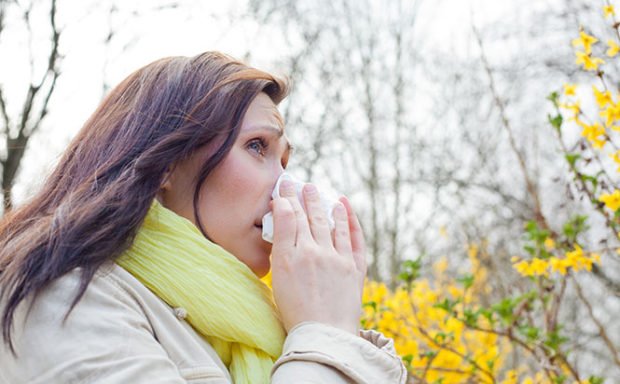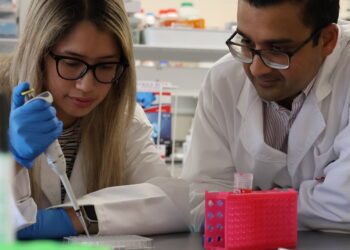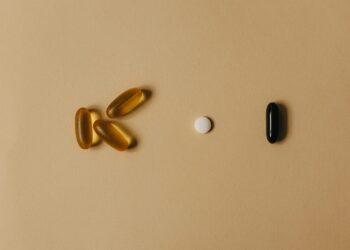Spring is here and it’s the glorious time of the year when temperatures warm up, sunlight increases and vegetation begins to grow and flourish. With this change in temperature, spring also marks the start of the hay fever season. For those who suffer from this condition, spring can be a time of great discomfort and a never ending runny nose. Below are my natural tips to help provide you with some hay fever relief this spring.
What is hay fever?
Allergic rhinitis, or commonly known as hay fever is a very common condition. According to the Australasian society of clinical immunology and allergy, it affects 1 in 5 (children and adults) in Australia and New Zealand. Hay fever can be defined as an allergic reaction to environmental allergens such as pollens, dust mite and animal hair and it affects the nose and upper respiratory systems. It can occur seasonally, known as ‘seasonal rhinitis’ and flare up in times when there is high pollen in the air, or can affect some people all year round. Common signs and symptoms of hay fever include sneezing, watery eyes, nasal congestions, runny nose, itchy eyes throat and skin.
Reducing exposure of allergens and preventing hay fever.
Hay fever is a reaction to an allergen that causes the body to release the antibody immunoglobulin E (IgE). According to Dr Mercola, this antibody releases histamine that triggers the symptoms associated with hay fever such as sneezing, itchy eyes and a runny nose. For those who suffer from chronic hay fever, an allergy test to identify the allergen would be highly beneficial. It is best to consult your GP or health practitioner to see if this is suitable for you.
Natural tips for combating hay fever relief this spring
1. Reduce the chemical load on your body
Help support and calm your immune system by avoiding chemicals and pesticides in your food and beauty products. These chemicals can be damaging on our gut health but may weaken our immune system. Boost your immune system ready for the spring season by enjoying a wholefood diet with well prepared, well sourced organic or pesticide free foods.
2. Vitamin C
Vitamin C is a fantastic natural anti-histamine and may be useful in treating allergic rhinitis and upper respiratory infections. Vitamin C can be taken in supplement form or enjoyed through your foods in citrus, kiwi fruit and papaya. It is best to increase your dosage or intake before spring arrives as a preventative nutrient therapy.
3. Herbal Medicine
Calm and soothe inflammation and sinus irritation through the use of herbal medicine. There are some amazing herbs out there that may be very effective in treated hay fever and alleviating associated symptoms. My favourite herbs for hay fever include:
– Albizzia: an anti-allergic and anti-inflammatory herb that is great for the upper respiratory system.
– Goldenseal: an antibiotic, antiseptic and astringent herb that heals the mucous membrane of the respiratory tract.
– Nettle: an anti-allergic, anti-inflammatory and anti-histamine herb.
– Echinacea: an immune boosting and anti-inflammatory healing herb.
– Eyebright: a fantastic herb for the upper respiratory system it is anti-catarrhal, anti-inflammatory, anti-septic, and astringent.
4. Nasal irrigation
Nasal irrigation using a Neti Pot with saline or a salt water solution is a great natural remedy for hay fever. Flushing out the sinus on a regular basic can help clear congestion and reduce inflammation. It is an ancient Ayurvedic Treatment, with Neti meaning ‘nasal cleansing’ in Sanskrit and has been proven to be an effective treatment with patients with sinusitis.
5. Vitamin D
Ensuring you get plentiful amounts of Vitamin D can help regulate the immune system and help prevent seasonal hay fever. Recent research shows that Vitamin D has been shown to have an immunomodulatory effect with a significant impact on immune function. Current research also shows that patients who suffered from chronic sinus issues had insufficient levels of vitamin D. Making sure you get enough sunshine or supplementing with vitamin D may help support the immune system and prevent hay fever.
*Herbs may be taken in the form of a tea or tincture form. Herbal tinctures are only available with a prescription from your Naturopath or Herbalist. A qualified practitioner will ensure your medication; supplements or disease state does not interact with the herbs. When an herbalist prescribes herbal medicine they consider one’s constitution: age, allergies, sensitiveness, robustness, size, temperature, current status of health and personality. Always remember to tell your practitioner if you’re pregnant or breast-feeding.
Follow Anthia: Website | Facebook | Twitter





















